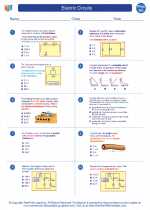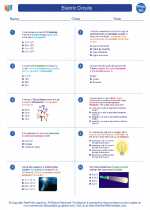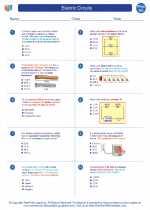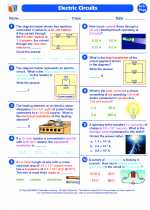Mechanical Power
Mechanical power is the rate at which work is done or energy is transferred in a mechanical system. It is a crucial concept in physics and engineering, as it helps us understand the performance and efficiency of machines and mechanical processes.
Formula for Mechanical Power
The mechanical power (P) can be calculated using the following formula:
P = F * v
Where:
- P is the mechanical power in watts (W)
- F is the force applied in newtons (N)
- v is the velocity of the object in meters per second (m/s)
This formula shows that the mechanical power is directly proportional to the force applied and the velocity of the object. In other words, the greater the force exerted or the faster the object moves, the higher the mechanical power.
Units of Mechanical Power
The SI unit of mechanical power is the watt (W), named after James Watt, the inventor of the steam engine. One watt is equal to one joule per second, which represents the rate of energy transfer or work done per unit time.
Applications of Mechanical Power
Mechanical power is a fundamental concept in various real-world applications, including:
- Engine performance and efficiency
- Electric motors and generators
- Elevators and escalators
- Industrial machinery and manufacturing processes
Study Guide
To understand and master the concept of mechanical power, students should focus on the following key areas:
- Understanding the relationship between force, velocity, and mechanical power.
- Practicing calculations and problem-solving involving the mechanical power formula.
- Exploring real-world examples and applications of mechanical power in machines and mechanical systems.
- Comparing and contrasting the mechanical power of different machines to analyze their performance and efficiency.
By grasping these fundamental principles and applying them to practical scenarios, students can develop a strong understanding of mechanical power and its significance in the field of physics and engineering.
.◂Physics Worksheets and Study Guides High School. Electric Circuits

 Worksheet/Answer key
Worksheet/Answer key
 Worksheet/Answer key
Worksheet/Answer key
 Worksheet/Answer key
Worksheet/Answer key
